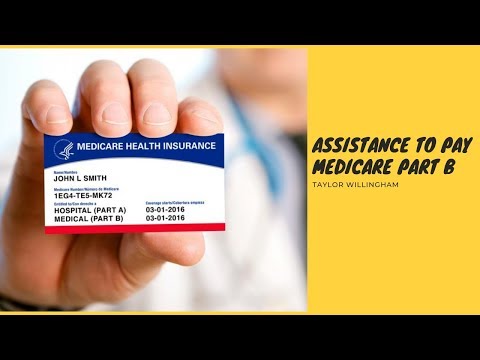What Types of Assistance Does Medicaid Provide for Medicare Beneficiaries?
Contents
- What is Medicaid?
- What types of assistance does Medicaid provide for Medicare beneficiaries?
- How can Medicaid help Medicare beneficiaries pay for their health care costs?
- What are the eligibility requirements for Medicaid coverage?
- How do I apply for Medicaid coverage?
- I am a Medicare beneficiary. How can I find out if I am eligible for Medicaid assistance?
- I am a Medicaid beneficiary. How can I find out what types of assistance I am eligible for?
- I am a Medicaid beneficiary. How can I find out how much assistance I am eligible for?
- I am a Medicaid beneficiary. How can I find out if my Medicaid coverage is still active?
- I am a Medicaid beneficiary. How can I find out if I am still eligible for Medicaid assistance?
There are a number of different types of assistance that Medicaid provides for Medicare beneficiaries. These include help with paying for Medicare premiums, co-pays, and deductibles. Medicaid can also help with paying for some of the services that Medicare doesn’t cover, such as long-term care.
Checkout this video:
What is Medicaid?
Medicaid is a health insurance program for low-income individuals and families. Medicaid is jointly funded by the federal government and the states, and each state has its own Medicaid program. Medicaid covers a wide range of health care services, including doctor visits, prescription drugs, hospitalizations, and long-term care. In some states, Medicaid also covers dental care and vision care.
Medicaid is an entitlement program, which means that anyone who is eligible for Medicaid can enroll in the program. There are two main groups of people who are eligible for Medicaid: low-income adults and children under the age of 19, and people with disabilities.
People who are eligible for Medicare ( because they are 65 years of age or older, or they have end-stage renal disease or amyotrophic lateral sclerosis) can also enroll in Medicaid. This is known as dual eligibility. Dual eligibles make up a small but important group of people who are covered by both Medicare and Medicaid.
There are four main types of assistance that Medicaid provides for Medicare beneficiaries: premium assistance, cost-sharing assistance, long-term care assistance, and prescription drug assistance.
Premium assistance helps Medicare beneficiaries pay their Medicare premiums. In most states, this includes the Part B premium (which pays for outpatient services) and the Part D premium (which pays for prescription drugs). Cost-sharing assistance helps Medicare beneficiaries pay their Medicare deductibles and coinsurance. In most states, this includes the Part A deductible (which pays for hospitalization) and the Part B deductible (which pays for outpatient services). Long-term care assistance helps Medicare beneficiaries pay for long-term care services, such as nursing home care or Home Health Care Prescription drug assistance helps Medicare beneficiaries pay for their prescription drugs.
What types of assistance does Medicaid provide for Medicare beneficiaries?
Medicaid is a federal and state-funded program that helps low-income individuals pay for medical care. It is jointly administered by the Centers for Medicare and Medicaid Services (CMS) and state Medicaid agencies.
Medicaid provides a wide range of health care services for beneficiaries, including:
– Inpatient and outpatient hospital care
– Physician services
– Laboratory and x-ray services
– Home health care
– Long-term care
In addition, Medicaid also covers some other health services that Medicare does not, such as dental care, eyeglasses, and physical therapy.
How can Medicaid help Medicare beneficiaries pay for their health care costs?
Medicaid is a joint federal and state program that helps low-income people pay for medical care. Medicaid also provides assistance to certain groups of people who are eligible for Medicare, including people who have low incomes andresources.
There are four main ways that Medicaid can help Medicare beneficiaries pay for their health care costs:
1. Medicaid can help pay for Medicare premiums.
2. Medicaid can help pay for Medicare co-payments and deductibles.
3. Medicaid can provide Home health care services for people who are not eligible for care home health benefits.
4. Medicaid can provide long-term care services for people who are not eligible for Medicare long-term care benefits.
What are the eligibility requirements for Medicaid coverage?
In order to be eligible for Medicaid coverage, an individual must meet certain income and resource requirements. These requirements vary from state to state, but in general, Medicaid covers low-income adults, children, pregnant women, people with disabilities, and the elderly.
To learn more about the specific eligibility requirements for Medicaid coverage in your state, you can visit the website of your state’s Medicaid program.
How do I apply for Medicaid coverage?
To apply for Medicaid coverage, contact your state Medicaid office. You can find your state’s Medicaid office contact information at www.medicaid.gov/contacts or by calling 1-800-MEDICARE (1-800-633-4227). TTY users can call 1-877-486-2048.
I am a Medicare beneficiary. How can I find out if I am eligible for Medicaid assistance?
If you are a Medicare beneficiary, you may be eligible for Medicaid assistance. Medicaid is a state-run program that provides medical assistance to low-income individuals and families. Each state has its own eligibility requirements for Medicaid, so you will need to contact your state’s Medicaid office to find out if you qualify. You can find your state’s Medicaid office contact information at https://www.medicaid.gov/medicaid/contacts/index.html.
I am a Medicaid beneficiary. How can I find out what types of assistance I am eligible for?
There are a number of ways that Medicaid can provide assistance to Medicare beneficiaries. Medicaid can help with things like Medicare premiums and out-of-pocket costs, as well as provide coverage for services that Medicare does not cover. Medicaid benefits vary from state to state, so it is important to check with your state’s Medicaid office to find out what programs are available and how to apply.
I am a Medicaid beneficiary. How can I find out how much assistance I am eligible for?
There are a number of financial assistance programs available through Medicaid for Medicare beneficiaries. Each state has different programs and eligibility requirements, so it’s important to check with your state’s Medicaid office to see what assistance may be available to you. Generally, Medicaid provides assistance with Medicare premiums, copayments, and deductibles. Some states also offer additional assistance for prescription drugs, dental care, and other health care services.
I am a Medicaid beneficiary. How can I find out if my Medicaid coverage is still active?
If you are currently enrolled in Medicaid, you can contact your state Medicaid office to find out if your coverage is still active. You can also ask Medicaid about any changes to your coverage or benefits.
I am a Medicaid beneficiary. How can I find out if I am still eligible for Medicaid assistance?
If you are a Medicaid beneficiary, you may be eligible for assistance with your Medicare premiums and/or cost-sharing. You can contact your state Medicaid office to find out if you are still eligible for Medicaid assistance.







